Burundi crisis: President clings to power and delays elections amid continuing violence against protesters
More than 100,000 have fled ensuing violence into neighbouring countries
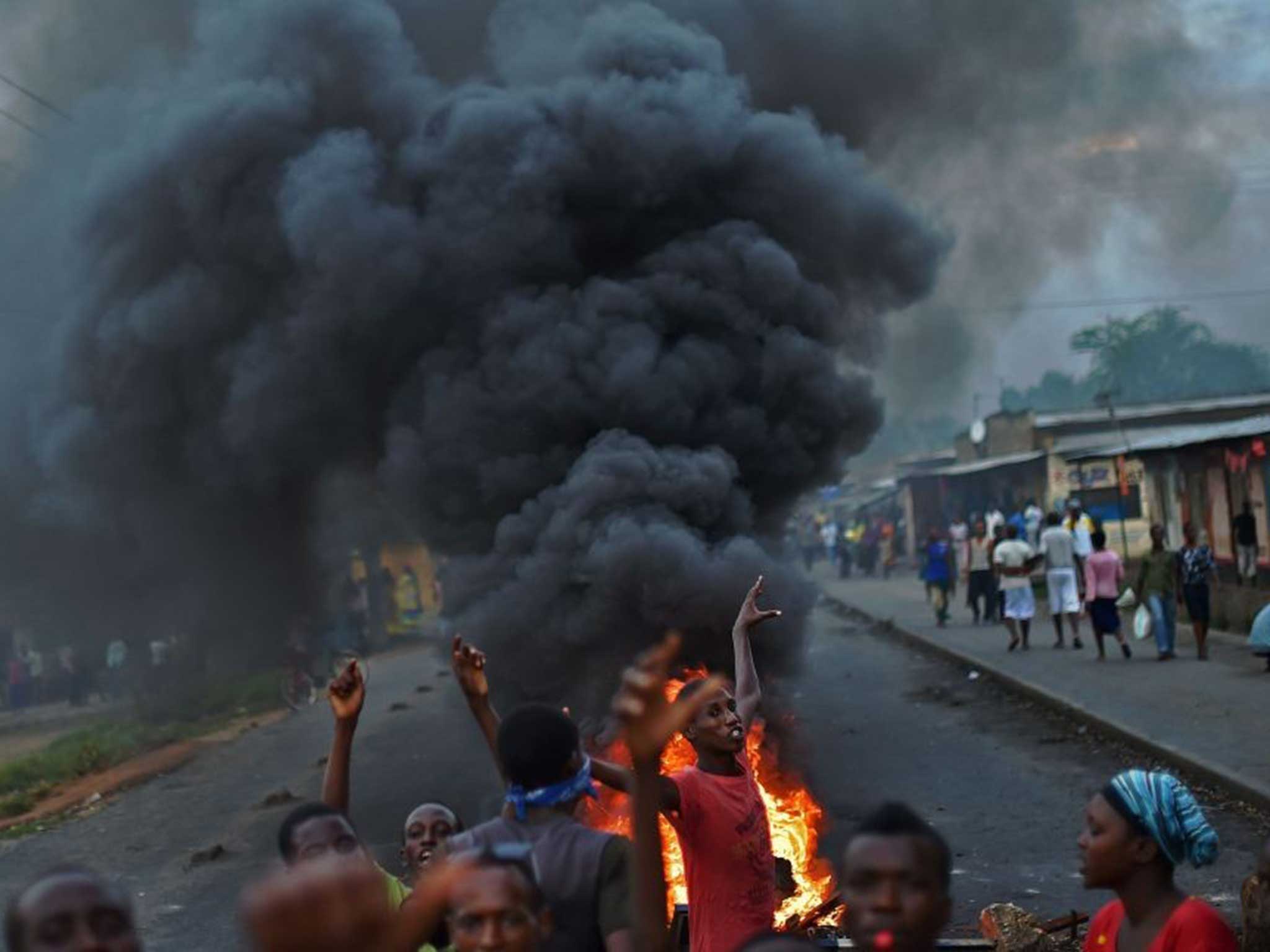
Your support helps us to tell the story
From reproductive rights to climate change to Big Tech, The Independent is on the ground when the story is developing. Whether it's investigating the financials of Elon Musk's pro-Trump PAC or producing our latest documentary, 'The A Word', which shines a light on the American women fighting for reproductive rights, we know how important it is to parse out the facts from the messaging.
At such a critical moment in US history, we need reporters on the ground. Your donation allows us to keep sending journalists to speak to both sides of the story.
The Independent is trusted by Americans across the entire political spectrum. And unlike many other quality news outlets, we choose not to lock Americans out of our reporting and analysis with paywalls. We believe quality journalism should be available to everyone, paid for by those who can afford it.
Your support makes all the difference.Burundi's president has delayed elections following an aborted coup last week as more than 100,000 people flee the African nation amid escalating violence.
The central African nation, bordered by Rwanda and sharing similar ethnic divisions, has seen increasingly angry demonstrations since April when President Pierre Nkurunziza announced his intention to seek what critics claim is an unconstitutional third term.
As protests spread – and were reportedly met with state violence – more than 110,000 have fled Burundi, which is still recovering from a decade-long civil conflict and is among the poorest countries in the world.
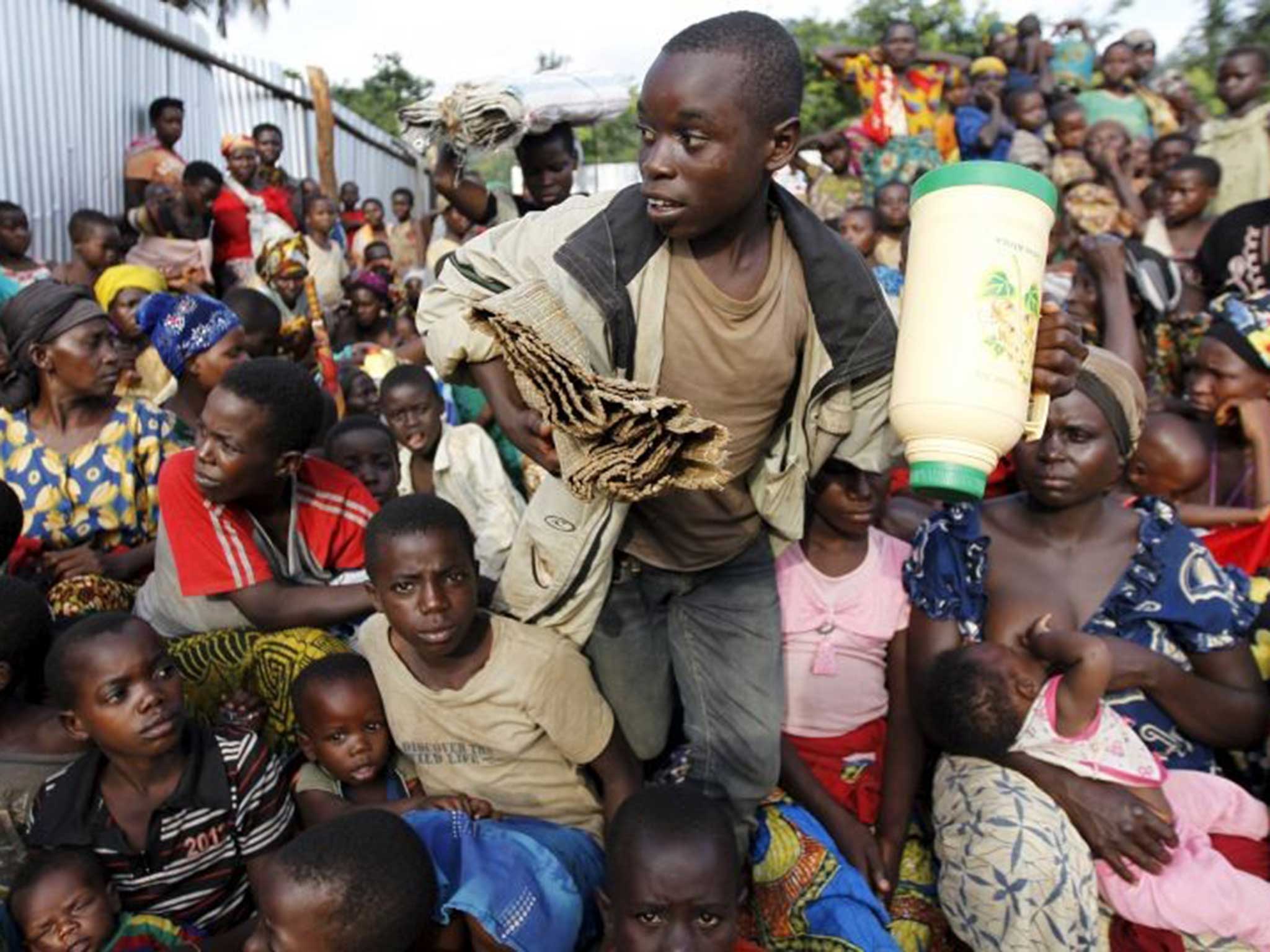
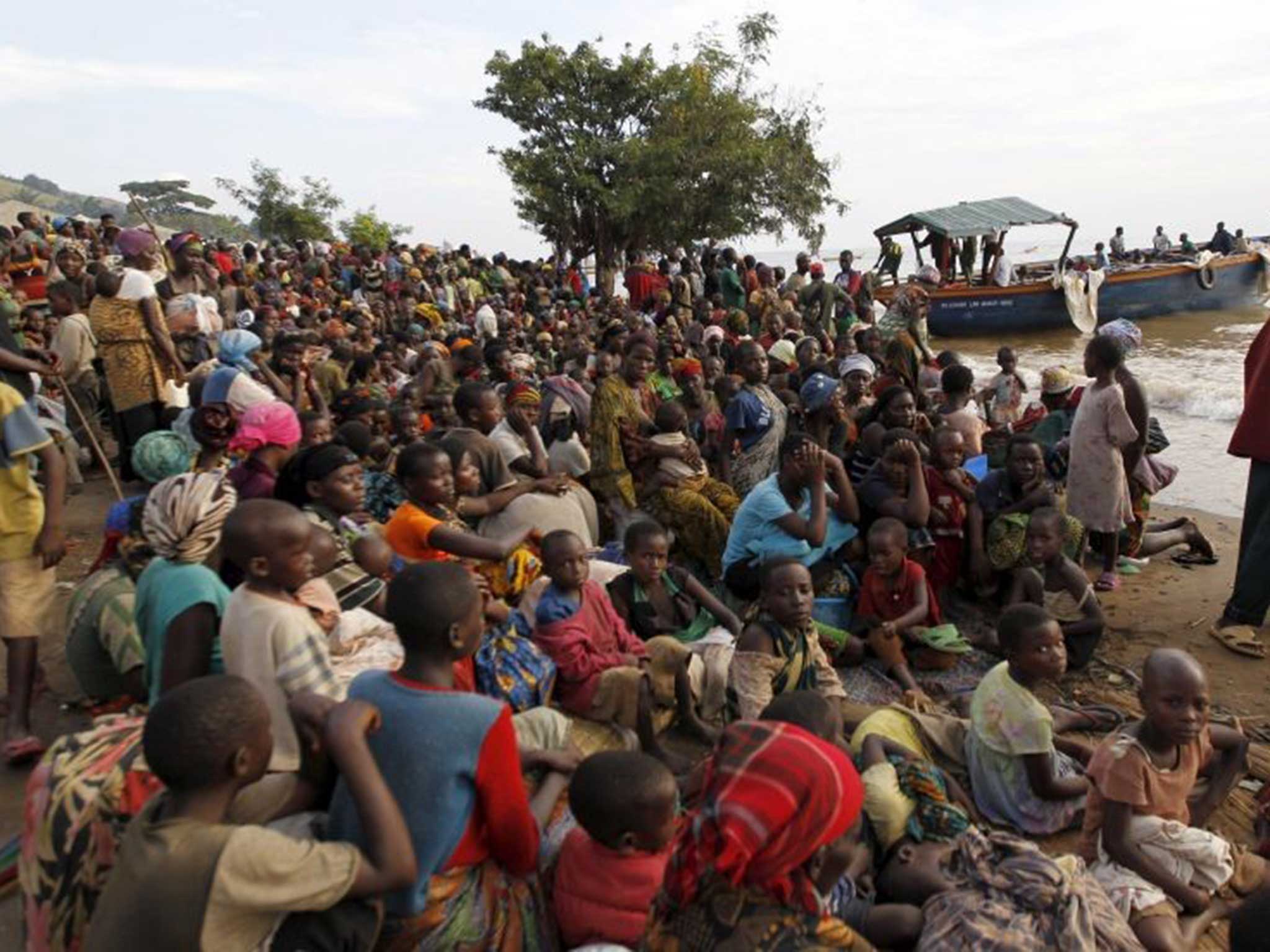
Approximately 80,000 refugees have sought shelter in neighbouring Tanzania, but the spiralling numbers continuing to arrive coupled with inadequate access to drinking water and basic sanitation has seen cases of cholera confirmed, according to the World Health Organisation (WHO).
Meanwhile, reports emerged today of protesters in Burundi continuing their daily street demonstration as police used tear gas in an attempt to disperse the crowds. There were also isolated reports of live ammunition being used, according to Reuters.
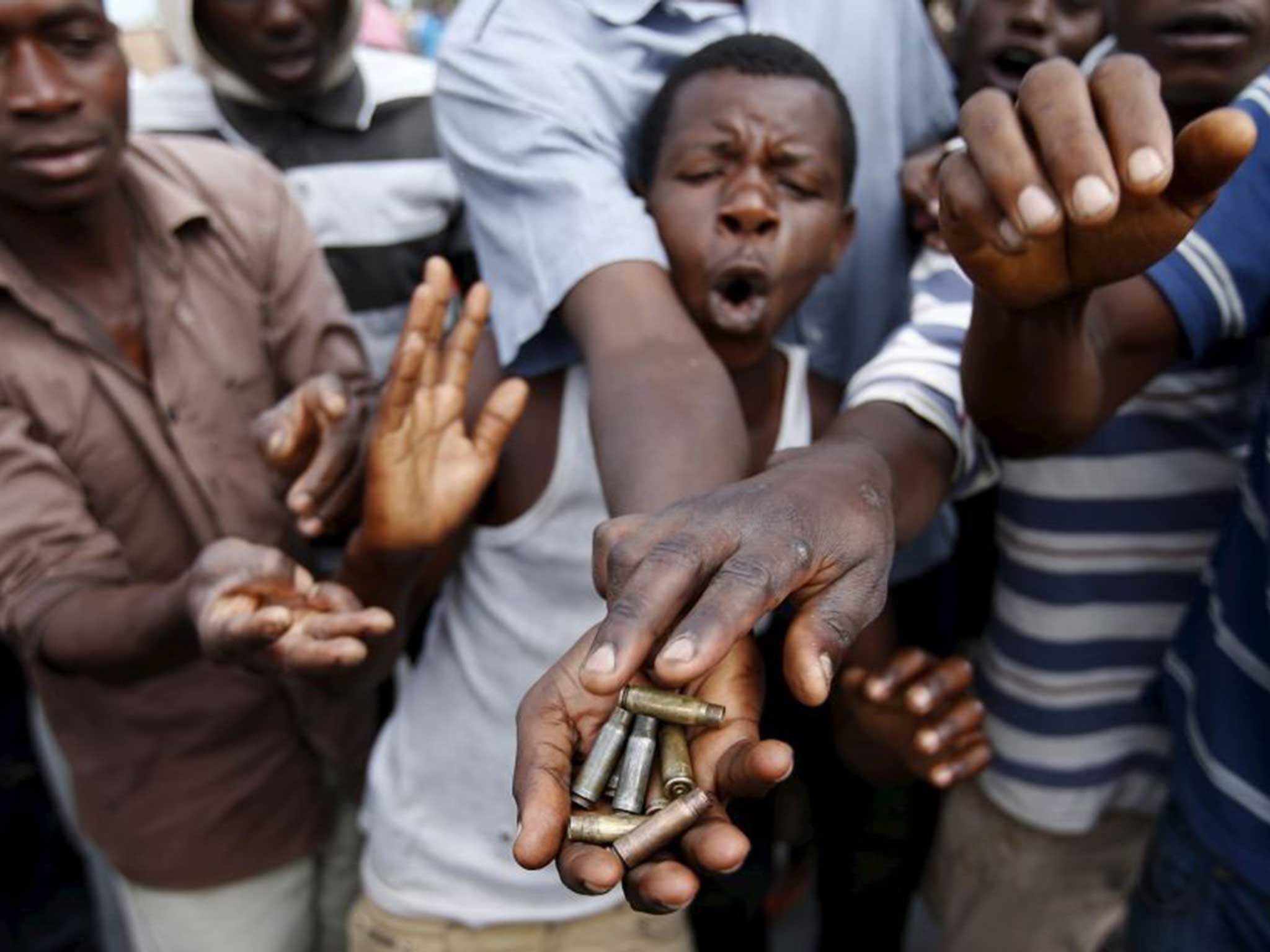
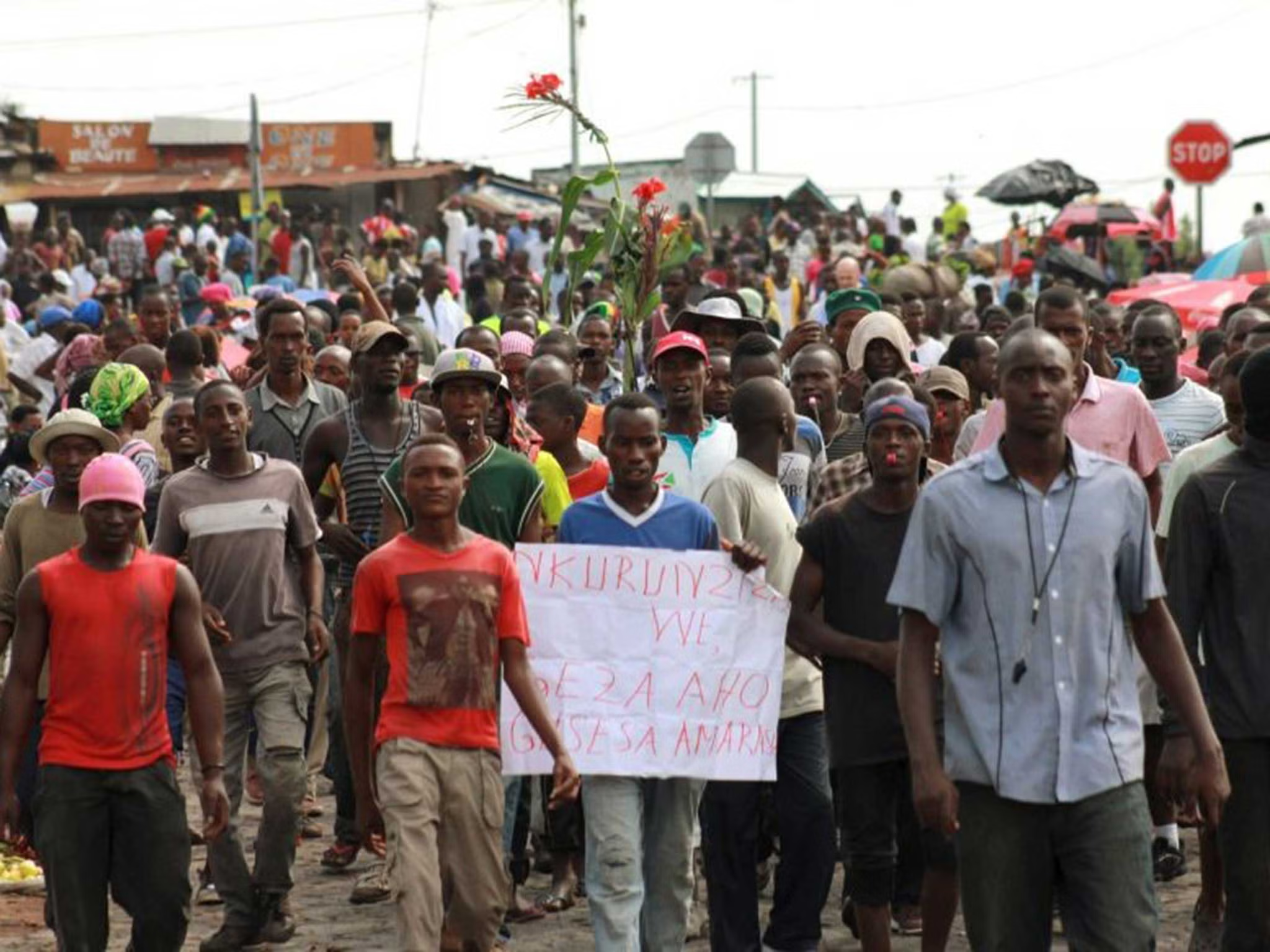
President Nkurunziza’s decision to delay elections has been backed by regional heavyweight South Africa – although diplomats fear that a delay will only worsen the crisis developing on the ground.
Many of the protesters – who publically celebrated when it briefly appeared there had been a successful coup – claim that the president cannot seek a third term under the constitution drawn up in 2005.
Prior to the shaky 2005 peace agreement, more than 300,000 Burundians died during 10 years of civil war that pitted the majority Hutu against minority Tutsi ethnicities.
Additional reporting by Reuters and Associated Press
Join our commenting forum
Join thought-provoking conversations, follow other Independent readers and see their replies
Comments